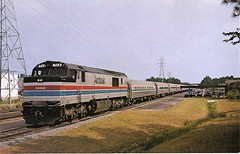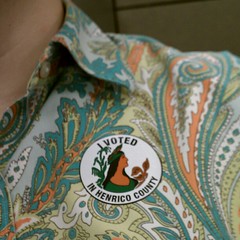
Speaker: Anne McKee, GWLA
SERU was heavily involved in putting this session together. SERU hopes to put away with the madness of licensing and come up with mutually agreeable terms.
Most libraries purchase ebooks in order to make them available 24/7 to their users. While they haven’t grown to proportion sizes larger than print in library collections, they are heading there.
Researchers like ebooks because they don’t have to return them, and are more accessible than print books in the developing world. Students appreciate the ease of accessibility, particularly distance learnings, but given the choice they would take print over e every time. Libraries like them because there are easier/better ways of assessing usage and value to their users, but there are licensing and DRM headaches.
Speaker: Adam Chesler, Business Expert Press / Momentum Press
He has worked for large publishers, but now works for a small, new publisher.
What’s hard for a new publisher to break into the library market? Creating awareness, providing value — acquisition librarians are already overwhelmed with sales pitches via email. Authors may be wary of working with an unknown outlet when there are so many other options. They have to figure out ways to do this creatively.
Gaining budget shares in library materials budgets is challenging, where established publishers have long-standing space. Setting up trials for libraries and following up on them is challenging when one person is responsible for every business/science library in North America. “If you set up a trial, it would be much better to tell me to go to hell than ignore me.”
What’s easy? Nothing.
Well, being an e-only publisher means they don’t have responsibility for a print legacy that needs to be converted to online. That’s easy. They also have more freedom to experiment, particularly with pricing models. And SERU. That’s easy. They also don’t have their own platform, so they make the books available on established providers libraries are already comfortable using.
Speaker: Kimberly Steinle, Duke University Press
When they created the ebook side of the press, they modeled it after the ejournal side, with similar tiered pricing. They also work with the other ebook platforms and their pricing and licensing models.
While the ejournal collection sales are significant, they were surprised to find that ebook collections were not as popular as individual title sales.
They thought selling ebooks would be easy, since they already had existing relationships. MARC records, pricing, technology — not as easy as they thought. Squeezing the ebook model into the ejournal model doesn’t quite fit.
It’s easy to set up multiple sales models, but harder to get information about who the customers are and using that to make business decisions.
They’re a little worried that if they give up DRM it will impact print sales, but it’s obviously pretty unpopular and they do want the books to be used. They’re thinking about future formats — EPUB3, HTML5 — they need to keep up. They’re thinking about new ways to sell the content, and increasing the number of platforms and partners they work with.
Speaker: Bob Boissey, Springer
Serials come first at Springer (because they’re 80% of your materials budget). But, he’ll talk about ebooks today.
The STM publisher’s preference is to sell ebooks in packages directly to libraries, but there are other models based on library or patron selection that have some appeal. Eventually, market forces will probably mean they’ll have to do something with PDA.
In the post-PDA world, maybe we stop selecting and make sure that our systems are solid for allowing our users to find the best, most relevant content in an un-scoped collection. Might also mean giving up some of our concepts about what librarianship is.
The easy stuff: Libraries are the traditional purchasers of scholarly books, and publishers know how many print books we’ve purchased from them in the past. Many eresource issues were resolved with ejournals. SERU. The volume discount approach to selling ebook packages can work if the per unit cost is low, the percentage of portfolio used is high, and the spend is commensurate with print spend, but with more titles. Include textbooks and reference books in the package. Remove DRM, pair with liberal use and ILL permissions.
The not so easy, but not so hard stuff: Editors and authors have not had an easy time coming to terms with ebooks, much like print on demand. Discovery layer for ebooks is still the catalog, and it’s not down to the full text quite yet. Tablets are great for ebooks, and as they get more popular on campuses, ebooks get used more. Might have to give up the concept of book as a full thing and be okay with chapter-level reading. Most scholarly books outside of the humanities and social sciences are not read as a whole.










